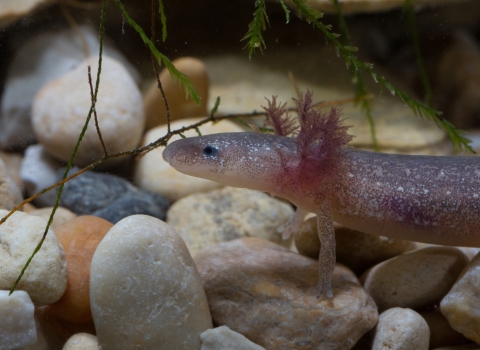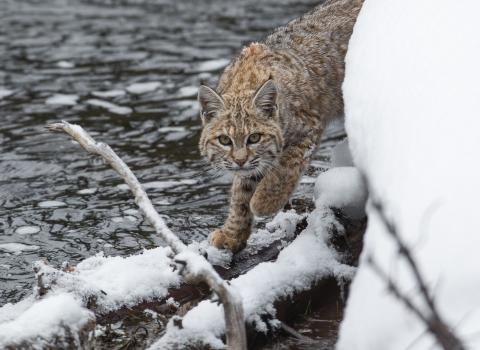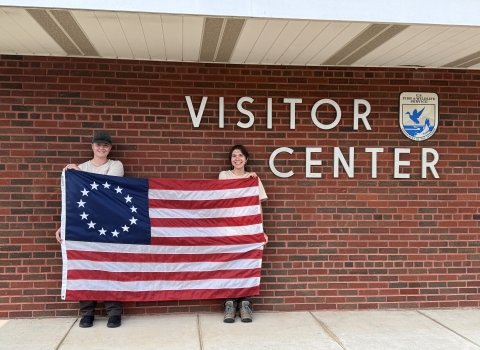We hope you join the USFWS Library for our Summer Wild Read. We're currently reading An Immense World: How Animal Senses Reveal the Hidden Realms Around Us by Pulitzer Prize winning science journalist, Ed Yong. One new vocabulary word we've learned is "umwelt" a German word for environment, that denotes an organism's unique sensory world. We're stepping outside our own umwelten, our biases and human perceptions, to embrace those of other creatures. This book is about animals as animals and it's written to better understand their lives. Ed Yong celebrates the diversity of life in the animal kingdom. If you haven't already, pick up this book for some summer reading!
The Earth teems with sights and textures, sounds and vibrations, smells and tastes, electric and magnetic fields. But every kind of animal, including humans, is capable of only perceiving a tiny sliver of our immense world. Every animal is uniquely made, each with its own sensory world. Animals have adapted over time and their senses are shaped according to their needs.
Let's dive into the text with the following questions for our upcoming book discussion on Thursday, August 15th from 3:00 pm ET. Our discussion is online via Zoom and all are welcome. We can't wait to hear your thoughts from the reading. Please register in advance.
Discussion Questions
Did An Immense World make you examine your own sensory experiences? If you could rely only on one sense, which would it be- sight, sound, smell, taste, or touch? Why?
As Ed Yong takes us through the senses, including those we know well and less familiar senses, we’re informed of swaths of interesting research to help us see past the perceptual worlds our brain automatically creates. Is there a species whose sensory abilities you’d like for yourself?
What was it like for you to envision sensory experiences outside of your perception? How can humans address our perception bias?
What are the impacts of the ignorance of other animal’s Umwelten?
Yong writes about sensory pollution as a facet of the Anthropocene. How can we be more aware of how human activity effects animal senses, and what can we do to prevent sensory pollution?
Brought to you by the USFWS Library, America's Wild Read is a virtual book club where we aim to inspire you to engage with conservation literature and nature writing. We hope you will read along with us as we feature various conservation books every quarter — contemporary, traditional, new, and classic.




